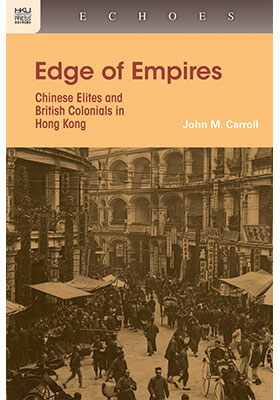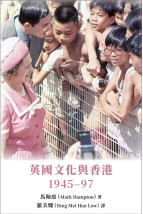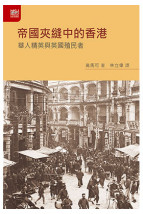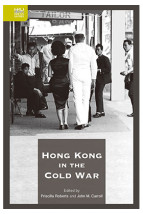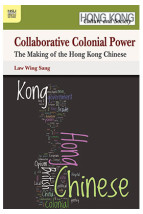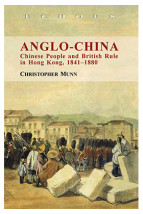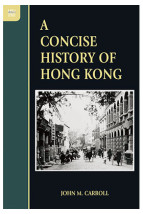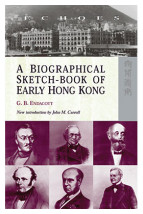Edge of Empires
Chinese Elites and British Colonials in Hong Kong
(帝國夾縫中的香港:華人精英與英國殖民者)
ISBN : 978-962-209-858-9
Echoes: Classics in Hong Kong Culture and History
April 2007
276 pages, 6″ x 9″, 1 b&w map
For sale in the Greater China area (Hong Kong, the Mainland, Macao, Taiwan) and Southeast Asia only
- HK$210.00
In an engaging, revisionist study, John Carroll argues that in the century after the Opium War, Hong Kong’s colonial nature helped create a local Chinese business elite. By the end of the nineteenth century, the colonial government saw Chinese businessmen as allies in establishing Hong Kong as a commercial center. The idea of a commercially vibrant China united them. Chinese and British leaders cooperated on issues of mutual concern, such as the expansion of capitalism and political and economic directions for an ailing China.
These Chinese also found opportunities in the colonial system to develop business and commerce. In doing so, they used Hong Kong’s strategic position to underscore their own identity as a distinctive group unlike their mainland counterparts. Nationalism took on a specifically Hong Kong character. At the same time, by contributing to imperial war funds, organizing ceremonies for visiting British royalty, and attending imperial trade exhibitions, the Chinese helped make Hong Kong an active member of the global British Empire.
In Edge of Empires, Carroll situates Hong Kong squarely within the framework of both Chinese and British colonial history, while exploring larger questions about the meaning and implications of colonialism in modern history.
“This book fills an important gap in the scholarship on Hong Kong. As a close study of the rise of a Hong Kong-based Chinese bourgeoisie, Edge of Empires has much to offer current studies of Chinese diaspora, business history, and political culture. It also challenges prevailing theories of global empires and colonialism.” —Wen-hsin Yeh, University of California, Berkeley
“Historians such as John Carroll lived in this dynamic society long before they ever thought of studying it. Though they bring to the subject an awareness of post-coloniality and comparative history, their work arises organically from their experiences, which may be why it is so enjoyable for the non-specialist to read.” —Timothy Brook, Itinerario
“Offering fresh perspectives on the encounter between British rulers and their Chinese subjects in colonial Hong Kong, John Carroll demonstrates how, perched precariously between China and Britain and pulled by competing claims on their loyalties, Chinese business leaders nevertheless made Hong Kong a place of their own and cultivated a nascent Hong Kong identity.” —Elizabeth Sinn, The University of Hong Kong
“Even more than most new history monographs, John M. Carroll’s carefully argued, informative study of Hong Kong’s bourgeoisie circa 1841–1941 is one that it is easy to imagine readers picking up very different goals in mind, only to come away with contrasting senses of the novelty and importance of its arguments.” —Jeffrey N. Wasserstrom, American Historical Review “As John M. Carroll notes at the start of his excellent book, history has largely ignored this community [Hong Kong] and its heritage . . . . Mr. Carroll emphatically puts this right.” —Far Eastern Economic Review “The writing is clear and the variables and arguments are developed in a captivating, systematic fashion such that it is difficult to put this book down. . . . Mr. Carroll has written a very stimulating book that opens up the discussion of the colonialization of Hong Kong and the role of the Chinese elite in its development. His careful scholarship considers events and contexts as he weaves and supports a clearly defined thesis. I would highly recommend this book: it is instructive not only in understanding Hong Kong’s past, but also its future rapport with China.” —Journal of Asian Economics
